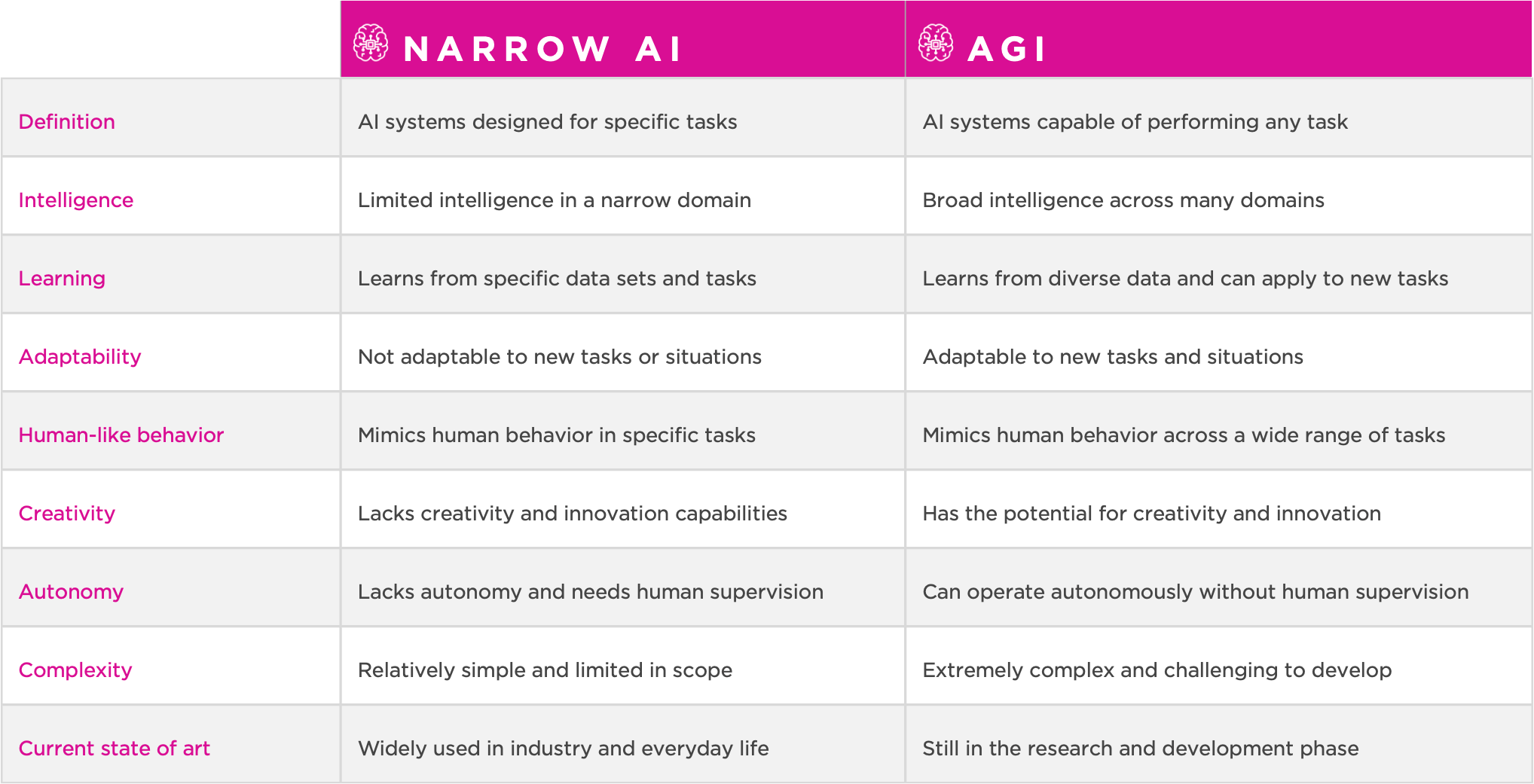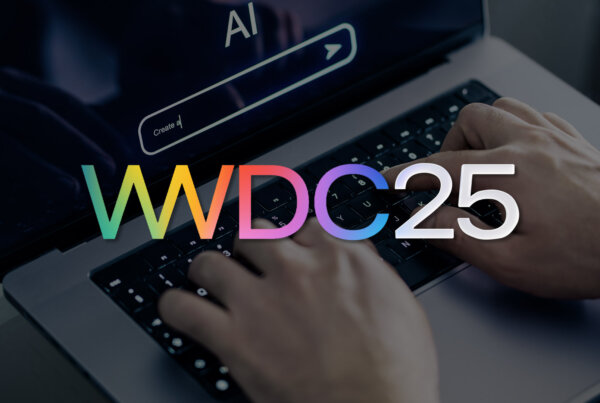Unpacking key takeaways from Kochava’s recent AI webinar
In a recent dynamic webinar on Generative AI’s potential within AdTech, an expert ensemble discussed pivotal insights and perspectives. Let’s take a look at some key takeaways from the discussion.

Must-Know: AI Defined
To begin, Ethan Lewis, CTO at Kochava, provided clarity on what AI truly is—an approach to training computer systems to perform tasks that mimic human behavior. But it’s more than that: it converges mathematics, computer science, and cognitive science to simulate human intellect. Lewis smartly differentiated AI into ‘Narrow AI’; focused on specific tasks, and ‘Artificial General Intelligence’ (AGI) that can self-learn and explore new concepts—although largely theoretical at this point.

Large Language Models (LLMs): Opaque Monsters or Tools of Potential?
One question that came up was about the secrecy surrounding large language models (LLMs). Lewis clarified that these models are essentially black boxes—their internal workings are not well understood due to their complexity and the billions of parameters involved in their operation. This lack of transparency, according to Lewis, indeed poses a unique challenge. However, he also pointed out that leveraging LLMs is an essential part of integrating AI into AdTech.
AI In Real-World AdTech
Katie Darren, Manager of Client Analytics at Kochava, noted a number of existing applications of AI, including machine learning. She detailed Kochava’s long-standing predictive churn modeling that leverages learnings from the first seven days of user engagement post-install to anticipate how that user will behave in a customer’s app for the subsequent 30 days. These insights, in turn, prime better marketing responses, especially when coupled with channel and campaign attribution. Marketing dollars can readily be optimized toward the channel partners, campaigns, and strategies that drive the highest engagement and user retention rates.
Mike Brooks, an AdTech investor and advisor, chimed in about the positive potential generative AI could have in real-world AdTech, particularly in media buying. All the experts collectively acknowledged the potential for generative AI to glean deeper insights about customers through generated content and analyze vast amounts of data to optimize advertising campaigns quicker and smarter.
Drawing the Fine Line: Brand Guidelines and AI
All excitement aside, the road to AI liberation isn’t without bumps. Brooks expressed reservations about generative AI’s potential to infringe brand guidelines and dilute brand identities. One solution is training AI on brand guidelines to ensure compliance and always maintaining human checkpoints along the way. Emphasis was also put on implementing ethical practices, such as citing, tracking, and watermarking generated content to ensure brand authenticity and transparency on the use of AI.
Hamilton Radcliffe, GM of Search Ads Maven at Kochava, further spotlighted success quantification issues while using AI for marketing, emphasizing the need for clear success criteria and direction. Nonetheless, Radcliffe sees a future where businesses could focus more on their primary goals while the menial, mundane marketing tasks take care of themselves through AI-driven automation.
The Promise of Generative AI in Marketing
Despite their concerns, the speakers were optimistic about the paradigm-shifting potential of generative AI in marketing, enabling marketers to learn more about their customers and better tailor advertising strategies accordingly. A particular question from the audience fueled this discussion by pondering whether generative AI could trigger a substantial uptake in multivariate testing for all elements of ad campaigns. Boosting the point, Mike Brooks added that research suggests the possibility of achieving scale faster using AI, having more efficient testing, and wasting fewer impressions.
The speakers all agreed that over the next 6 to 12 months, creative roles would see a seismic shift. The capacity to generate various content forms and personalized recommendations is set to be a key driver of marketing operations.
The Future of AI in AdTech
Generative AI holds unfathomable promise for the future of AdTech and marketing, with its potential to revolutionize creative applications, customer interaction, and campaign optimization. However, brand guidelines and ethical considerations need to stay at the forefront of this technological push for balance and sustainability. Rest assured, it’s a thrilling new chapter that’s only just beginning to be written. Brooks had thought-provoking advice for SMBs looking to get their feet wet with AI: leverage larger companies who’ve already paved the way in adopting AI into their platforms.
Kochava, as an example, recently added an AI Prompt to its platform in order to allow marketers to more easily and quickly extract insights from their marketing data. Learn more about Kochava AI Prompt here.
How are you planning to work generative AI into your marketing workflows? Get in touch with us to see how we can help.
Catch the Full Webinar On Demand
Our on-demand webinar, “Generative AI’s Explosive Potential in AdTech“, is available now! Hear the entire discussion directly from seasoned industry professionals about the potential and challenges of AI. Don’t miss this opportunity to enhance your understanding and apply these insights directly to your digital marketing strategies. Don’t just keep pace with the industry; set it.




